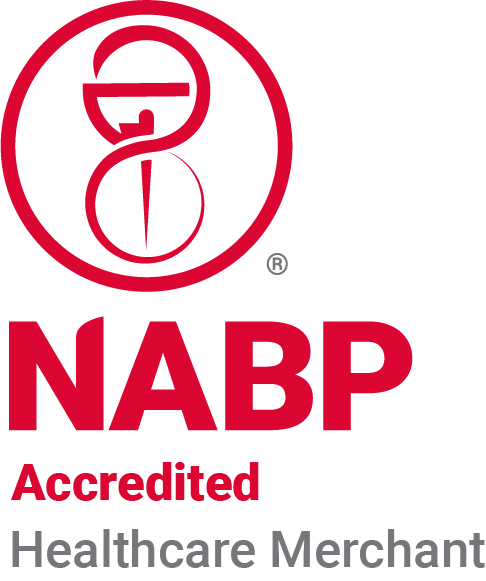Free Delivery on $50+*
Providing Quality & Trust
Potassium Citrate Granules Gold Vet
Kala Health Inc.
Starting at $20.44
$20.44 Each
Detailed Description
Potassium Citrate
(poe-tass-ee-um si-trate)
- Description: Urinary Alkalinizer
- Other Names for this Medication: Nutrived®, Urocit-K®
- Common Dosage Forms: Veterinary: 300 mg/5 g scoop oral granules; also contains fatty acids and amino acids.
Usually given with or mixed into food. Use of this medication requires ongoing monitoring by your veterinarian. Do not miss these important follow-up visits.
How is this medication useful?
In dogs and cats, potassium citrate can be used to prevent the formation of a type of urinary bladder and kidney stones (calcium oxalate). In animals with chronic chronic kidney disease, it can be used to increase blood potassium levels and decrease buildup of acids in the urine and blood.
- The FDA has approved this drug for use in humans but it is not officially approved for use in animals although a combination productis labeled for use in dogs and cats.
- The FDA allows veterinarians to prescribe products containing this drug in different species or for other conditions in certain situations.
You and your veterinarian can discuss why this drug is the most appropriate choice.
Uses/Indications:
Potassium citrate alone (Uracit-K®) has been used in the prevention of calcium oxalate uroliths in human patients. The citrate forms a complex with calcium to decrease urinary concentrations of calcium oxalate. The urinary alkalinizing effects of the citrate also increase the solubility of calcium oxalate. The efficacy of potassium citrate supplementation on the reduction of calcium oxalate stones in veterinary patients has not been fully elucidated. A single study evaluating its use in normal dogs found no difference in relative supersaturation of calcium oxalate and failed to demonstrate a significant increase in urinary citrate between control and study groups. A difference in urinary pH was detected between groups with the study group having a higher urinary pH than the control group.
Citrate salts serve as a source of bicarbonate but are usually more palatable than bicarbonate preparations. They are used as urinary alkalinizers, and in the management of chronic metabolic acidosis, they are accompanied by conditions such as renal tubular acidosis or chronic kidney disease. Compounds containing potassium citrate can also treat hypokalemia.
Potassium salts, including potassium citrate, have been described as part of the Gonto Protocol for the treatment of Fanconi Syndrome. Potassium citrate may be more beneficial than sodium bicarbonate administration in this group of patients for 2 reasons: The first is the concurrent administration of potassium supplementation, as many patients are concurrently hypokalemic. The second is that sodium bicarbonate administration results in an exacerbation of bicarbonaturia and administration of potassium citrate does not. The Gonto Protocol has not been evaluated in a clinical study but has been used extensively in the management of Fanconi Syndrome.
Adverse Effects:
The primary adverse effects noted with these agents are gastrointestinal in nature; however, most dogs receiving these products tolerate them well. Potassium citrate products have the potential for causing hyperkalemia, especially in patients predisposed to developing hyperkalemia (eg, hypoadrenocorticism, advanced kidney disease).
The oral liquids containing potassium citrate can have a bitter taste, making patient acceptance more difficult.
Side effects that usually are not serious include:
- Vomiting or diarrhea.
- Not common, as most animals tolerate oral potassium citrate well.
You don’t have to be overly concerned if you see either of these unless they are severe, worsen, or continue to be a problem. Contact your veterinarian if this happens.
Side effects that may be serious or indicate a serious problem:
- High blood potassium.
- Indications that this is a problem include: muscle weakness, collapse, and low energy level.
If you see any of these signs, contact your veterinarian immediately.
Precautions/Warnings:
Contraindications for products containing potassium citrate include aluminum toxicity, heart failure, acute kidney injury (with azotemia or oliguria), UTI associated with calcium, or struvite stones.
Additional contraindications for potassium citrate alone include hyperkalemia (or conditions that predispose to hyperkalemia such as adrenal insufficiency, acute dehydration, advanced kidney disease, uncontrolled diabetes mellitus), or peptic ulcer (particularly with the tablets).
The potassium citrate tablets are contraindicated in patients with delayed gastric emptying conditions, esophageal compression, or intestinal obstruction or stricture. These products should be used with caution (weigh risks versus benefit) in severe renal tubular acidosis or chronic diarrheal syndromes, as they may be ineffective.
If you have any other questions about this medication, contact your veterinarian or pharmacist.

Powered by nopCommerce
This site is running in live payment mode. Real payments will be processed.
